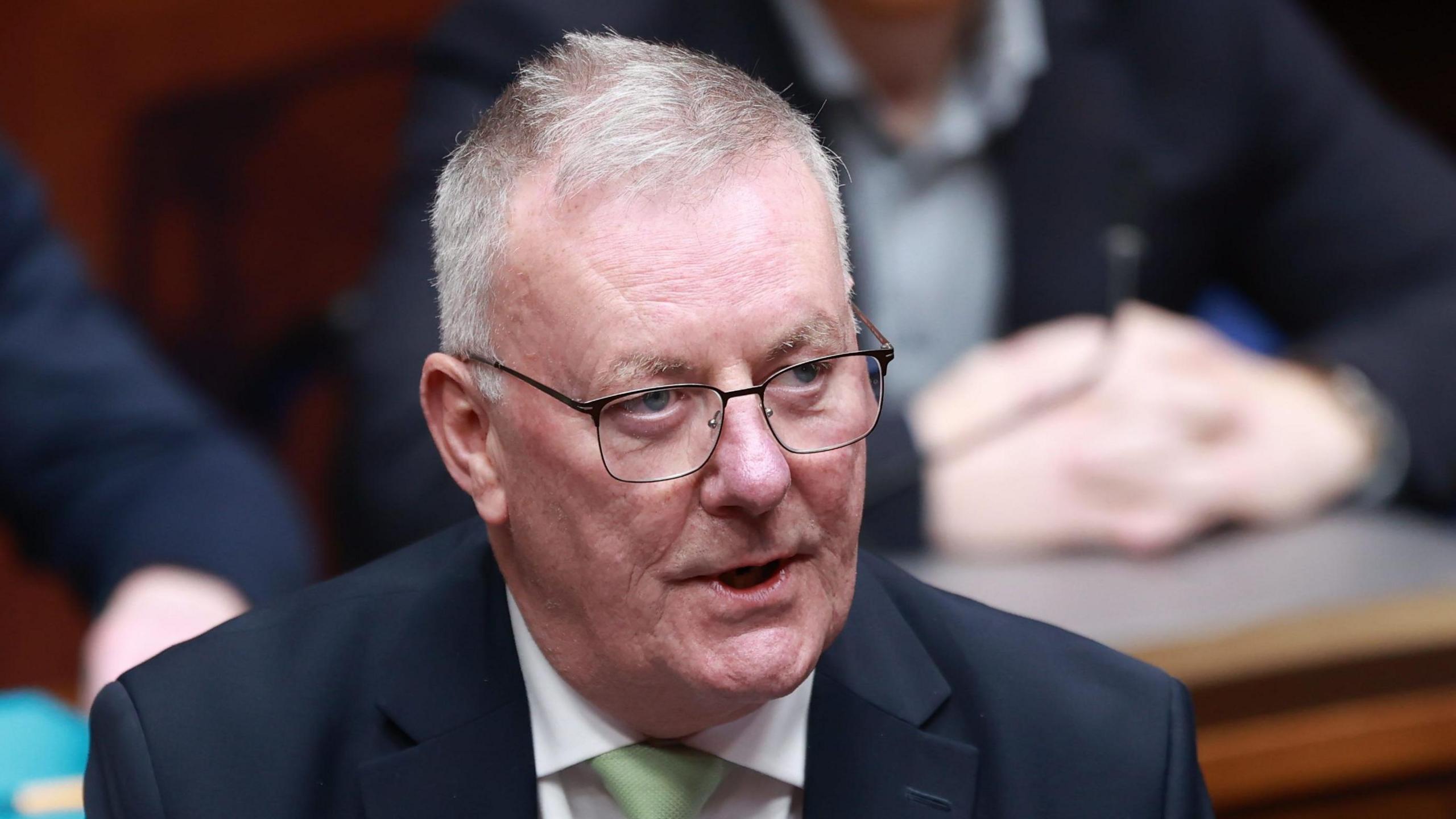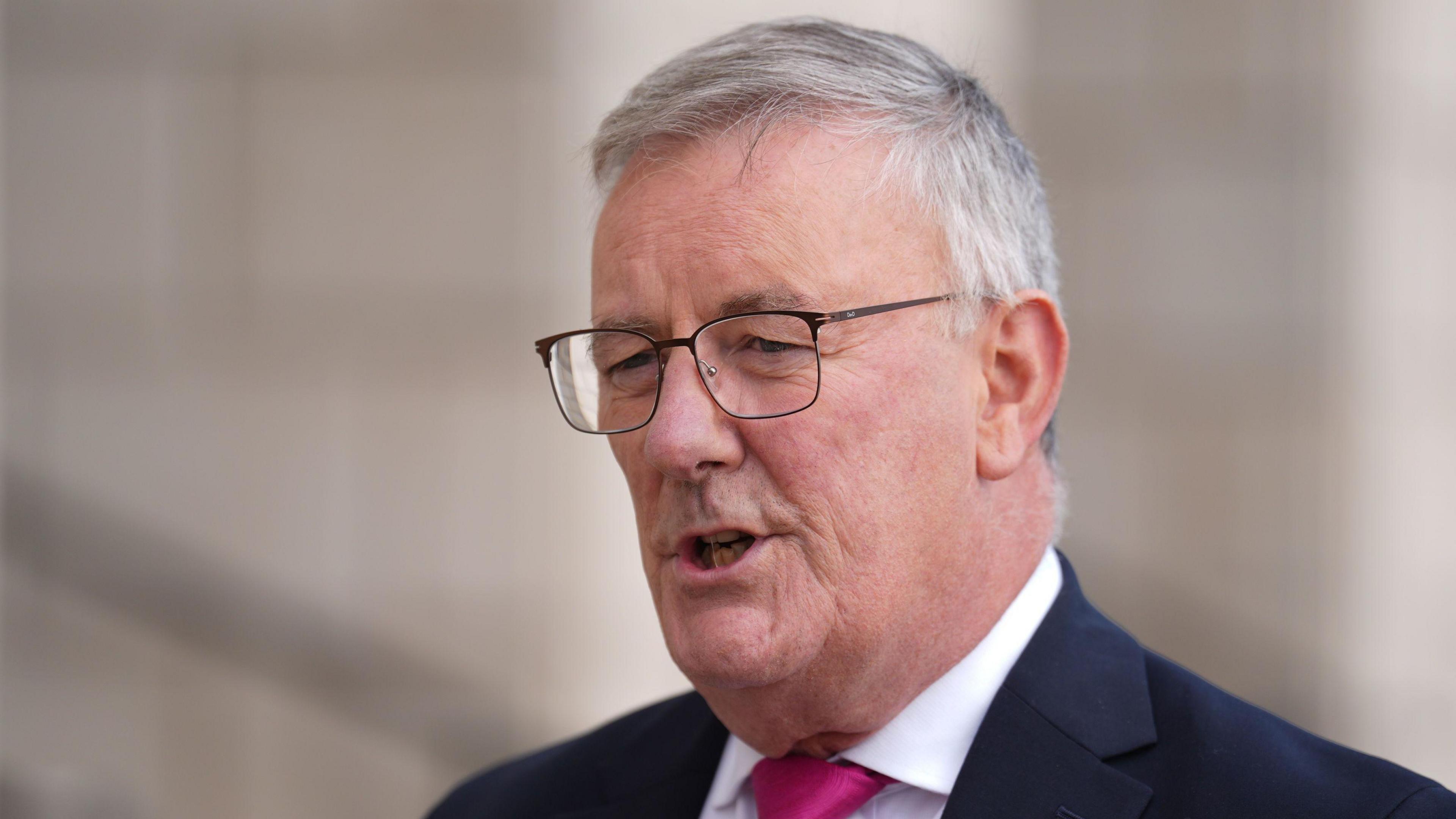'Significant risk' remains in wake of cardiac unit bullying claims - report

Health Minister Mike Nesbitt put extra measures in place at the trust after a leaked review found bullying allegations within the regional cardiac surgery
- Published
There is "still significant risk associated with the dysfunctional team dynamics" within a Belfast cardiac surgical team that is under scrutiny over bullying accusations, an independent report has found.
In May, a leaked inspection report found cardiac surgeons at the Belfast Trust threw instruments during procedures and bullied junior staff, leading Health Minister Mike Nesbitt to put the trust under extra accountability measures.
The report by independent experts, appointed by Nesbitt, examined the unit based at the Royal Victoria Hospital in Belfast, which serves patients across Northern Ireland.
The Belfast Trust said it looked forward to implementing the report's recommendations.

The report found there is breakdown in relationships between some of the consultant cardiac surgeons
Almost 1,000 operations are carried out by the trust's cardiac surgery unit every year.
The Belfast Health and Social Care Trust (BHSCT) is the largest integrated health and social care trust in the UK with more than 20,000 employees.
In a statement, the trust's chief executive Jennifer Welsh said the "recommendations from this report are a further and important next step in responding to the support and interventions from Minister Nesbitt, which I very much embrace".
"We will move forward together, and we will build a workplace that is a safe and supportive environment for all," she added.
What did the cardiac unit report say?
The report was compiled by two independent experts, Peter McBride and Dr Jennifer Hill.
It looked at the Belfast Trust's response to the cardiac surgery report.
The report said their "ongoing concern" is that there is a fundamental breakdown in relationships between some of the consultant cardiac surgeons, there is little trust between them, and consequently there is an ongoing risk to service delivery and patient safety".
The report recommended the trust monitor relationships in the cardiac surgery consultant team and their impact on service delivery and patient safety.
In a written statement to the assembly on Wednesday, Nesbitt said a significant amount of work has been completed by the two independent experts and the Belfast Trust.
He said an "action plan for improvement in relation to the specific cardiac surgery recommendations has been developed by the trust", and a number of actions such as civility training, governance and leadership have already been undertaken.
The report acknowledged that Belfast Trust is a "large complex organisation" and like the entire health system in Northern Ireland, is under extreme and "impossible pressure".
It said, "any such organisation will inevitably have examples of behaviours and actions that fall short of its expectations and standards".
The report's focus was to ensure that processes at the trust ensure that when "behaviours do fall short of what is expected, the organisation is willing to and capable of responding robustly and appropriately".
What did Belfast Trust staff say in the report?
The report included input from staff, by way of a questionnaire, which focused on the culture within the trust in relation to raising concerns.
It found that more than 2,000 staff experienced or witnessed inappropriate behaviour that they felt should be reported, but only about 700 formally reported their concerns.
The questionnaire, which 3,500 (17%) of staff responded to, found that most staff did not report an incident they witnessed because they believed nothing would change.
The report also found that while the rate of disciplinary, bullying and harassment cases have remained steady over the past five years, whistleblowing has shown a steady rise over the same period and legal claims against the trust have increased.
In June, the health minister put the trust on level five performance accountability, known as special measures, which is used in what he described as "only the most serious and exceptional cases".
Earlier, he said the trust has been advised on the broad expectations that would form the Department of Health's (DoH) "assessment of de-escalation" from those measures.
He said this would require a "significant demonstration of sustained improvement, implementation of all related recommendations for both cardiac surgery and across the trust where appropriate".
He added that patients and the safety of services provided to them "must always be the overriding priority" and that the department will continue to monitor the trust's commitment to this.
Related topics
- Published5 June

- Published29 May

- Published27 May
